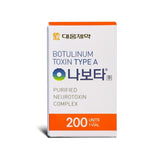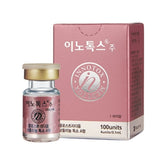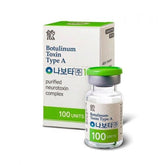The Influence of Genetics on Botulinum Toxin Results

The Influence of Genetics on Botulinum Toxin Results. Botulinum toxin treatments, known commonly by brand names such as Botox, Dysport, and Xeomin, have become a mainstay in cosmetic and medical treatments. They are renowned for their ability to smooth wrinkles, reduce muscle spasms, and even treat chronic conditions like migraines. While these treatments are widely used and typically very effective, the results can vary significantly from person to person. One key factor contributing to this variability is genetics. This blog post explores the influence of genetics on botulinum toxin results, providing insights into why some individuals may experience different outcomes.
Understanding Botulinum Toxin Treatments
Botulinum toxin is a neurotoxin produced by the bacterium Clostridium botulinum. It works by blocking the release of acetylcholine, a neurotransmitter responsible for muscle contraction. When injected into specific muscles, botulinum toxin temporarily paralyzes them, leading to reduced muscle activity. This mechanism is what makes it effective for both cosmetic purposes, like reducing facial wrinkles, and medical treatments, such as alleviating chronic migraines and muscle spasticity.
The Role of Genetics in Botulinum Toxin Results
Genetics plays a crucial role in determining how an individual responds to botulinum toxin treatments. Here are several ways in which genetics can influence the results:
- Metabolism of Botulinum Toxin:
Different individuals metabolize botulinum toxin at varying rates. Some people may break down the toxin more quickly due to genetic variations, leading to shorter-lasting results. Conversely, others may have slower metabolism, resulting in prolonged effects.
- Muscle and Nerve Structure:
The structure and composition of muscles and nerves can vary based on genetic makeup. This variability can affect how the botulinum toxin spreads and acts within the muscle tissue, impacting the overall effectiveness of the treatment.
- Receptor Sensitivity:
Genetic differences can influence the sensitivity of acetylcholine receptors. Individuals with higher receptor sensitivity may experience more pronounced results, while those with lower sensitivity may find the effects less noticeable.
- Immune Response:
Genetics can affect the immune system’s response to botulinum toxin. Some people may develop antibodies against the toxin, reducing its effectiveness over time. This immune response can be influenced by genetic predispositions.
Genetic Factors Influencing Botulinum Toxin Results
To understand the influence of genetics on botulinum toxin results, it's essential to consider specific genetic factors and how they interact with the treatment.
Metabolic Enzymes
Enzymes responsible for metabolizing botulinum toxin can vary due to genetic differences. Cytochrome P450 enzymes, for example, are known to exhibit genetic polymorphisms that can affect drug metabolism. Individuals with certain genetic variants may metabolize botulinum toxin more rapidly, leading to a shorter duration of action.
Muscle Fiber Composition
The composition of muscle fibers can differ based on genetic factors. Some people have a higher proportion of fast-twitch muscle fibers, while others have more slow-twitch fibers. This variation can influence how the toxin spreads and acts within the muscle, affecting the overall outcome of the treatment.
Acetylcholine Receptor Genes
Genetic variations in acetylcholine receptor genes can alter receptor sensitivity. Individuals with certain genetic variants may have receptors that are more or less responsive to botulinum toxin, influencing the degree of muscle relaxation and the visible results.
Personalized Approaches to Botulinum Toxin Treatments
Given the genetic factors influencing botulinum toxin results, a personalized approach to treatment is becoming increasingly important. Here are some strategies to optimize outcomes based on individual genetic makeup:
- Genetic Testing:
Genetic testing can provide insights into an individual’s metabolic rate, muscle composition, and receptor sensitivity. This information can help practitioners tailor botulinum toxin treatments to achieve optimal results.
- Customized Dosing:
By understanding genetic variations, practitioners can adjust the dosage of botulinum toxin to suit the patient’s unique needs. Those with faster metabolism may require higher or more frequent doses, while those with slower metabolism may need less frequent treatments.
- Targeted Injection Techniques:
Genetic insights can guide the precise placement of injections to account for variations in muscle and nerve structure. This targeted approach can enhance the effectiveness and longevity of the treatment.
- Monitoring and Adjustments:
Regular monitoring of treatment outcomes and adjusting the approach based on individual responses can help optimize results. Genetic information can inform these adjustments, ensuring a more personalized treatment plan.
Case Studies and Research
Several studies have highlighted the impact of genetics on botulinum toxin results. For instance, research has shown that genetic variations in the SNAP-25 protein, which is involved in the release of neurotransmitters, can affect the efficacy of botulinum toxin treatments. Individuals with certain genetic variants of this protein may experience different levels of response to the toxin.
Another study explored the role of genetic polymorphisms in the P450 enzymes and their influence on botulinum toxin metabolism. The findings suggested that individuals with specific genetic variants metabolized the toxin at different rates, affecting the duration of treatment efficacy.
Practical Implications
Understanding the influence of genetics on botulinum toxin results has practical implications for both patients and practitioners:
- Patient Education:
Educating patients about the potential genetic factors influencing their treatment can help manage expectations and improve satisfaction with the results.
- Enhanced Treatment Planning:
Incorporating genetic testing into the treatment planning process can lead to more precise and effective botulinum toxin treatments.
- Improved Outcomes:
By tailoring treatments based on genetic insights, practitioners can enhance the effectiveness, longevity, and overall success of botulinum toxin procedures.
The influence of genetics on botulinum toxin results is a critical factor in understanding why treatments may vary from person to person. By acknowledging and incorporating genetic factors into treatment planning, practitioners can offer more personalized and effective botulinum toxin treatments. This personalized approach not only enhances outcomes but also ensures that patients receive the best possible care tailored to their unique genetic makeup.
As research continues to uncover the intricate relationship between genetics and botulinum toxin efficacy, the future of cosmetic and medical treatments will likely see even greater advancements in personalized care. Embracing these insights today can lead to more predictable and satisfactory results for patients seeking the benefits of botulinum toxin treatments.





